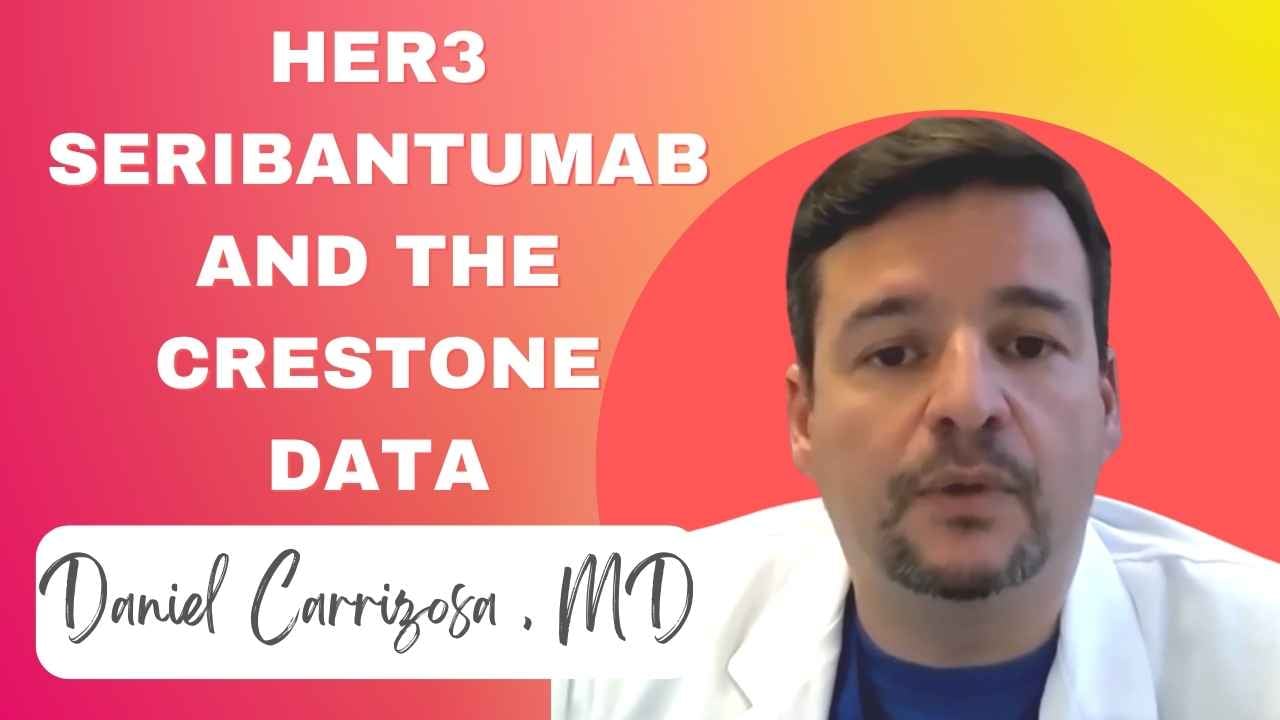CRESTONE was an international multi-site study looking at the use of Seribantumab, a monoclonal antibody to HER3, in the treatment of patients with solid tumors that harbor an NRG1 fusion. The study actually is looking at patients that have been treated with at least one form of therapy prior to coming into the study, and they must be adults that have a solid tumor that harbors an energy one fusion that is found locally the patients then receive Seribantumab weekly until they either have progression or they have unacceptable toxicities the study actually presented two different things both the safety and the efficacy in this interim analysis where the data was stopped in April of 2022 safety used patients both in the study and in earlier studies and it looked at the factor that the majority of the adverse events caused by Seribantumab were actually mild grade one or grade two and uh usually very tolerable they included diarrhea and rash and no patient actually came off study due to adverse events from the drug and there were no associated deaths from the drug the study actually reported investigator assessed overall response rate and that was 33 % in the 12 valuable patients the majority of those patients actually had non-small cell lung cancer with one patient with pancreatic cancer in the NOS muscle lung cancer group the overall response rate was slightly higher at 36 % and more importantly they had two complete responses and two partial responses this study actually showed the first complete responses in any patient treated with an energy one fusion over 90 % of patients had some type of disease response to the drug and therefore it was felt that it actually had a very good efficacy and the safety was quite tolerable therefore the study was hopefully going to show the potential for this drug to be a new treatment for patients with NRG1 fusions.
How Do Patients Receive The Drug?
One of the most common questions people ask me about the study is how common are these NRG1 fusions and. These oncogenic alterations are quite rare. We see about 0.2 % of patients, but they are current or 10 different types of solid tumors, so it is something that we should be looking for. These patients also don't seem to do as well as other patients. A large international registry study on looking at mainly lung cancer patients showed that these patients did not respond to standard therapies like chemotherapy or immunotherapy and had worse outcomes. Beyond that patient, people also question and ask about how people receive the drug, and that is done weekly through intravenous method, and whether it was very tolerable, and the study did show great tolerability...To Read The Rest of the Transcript or Watch the Video Click Here


